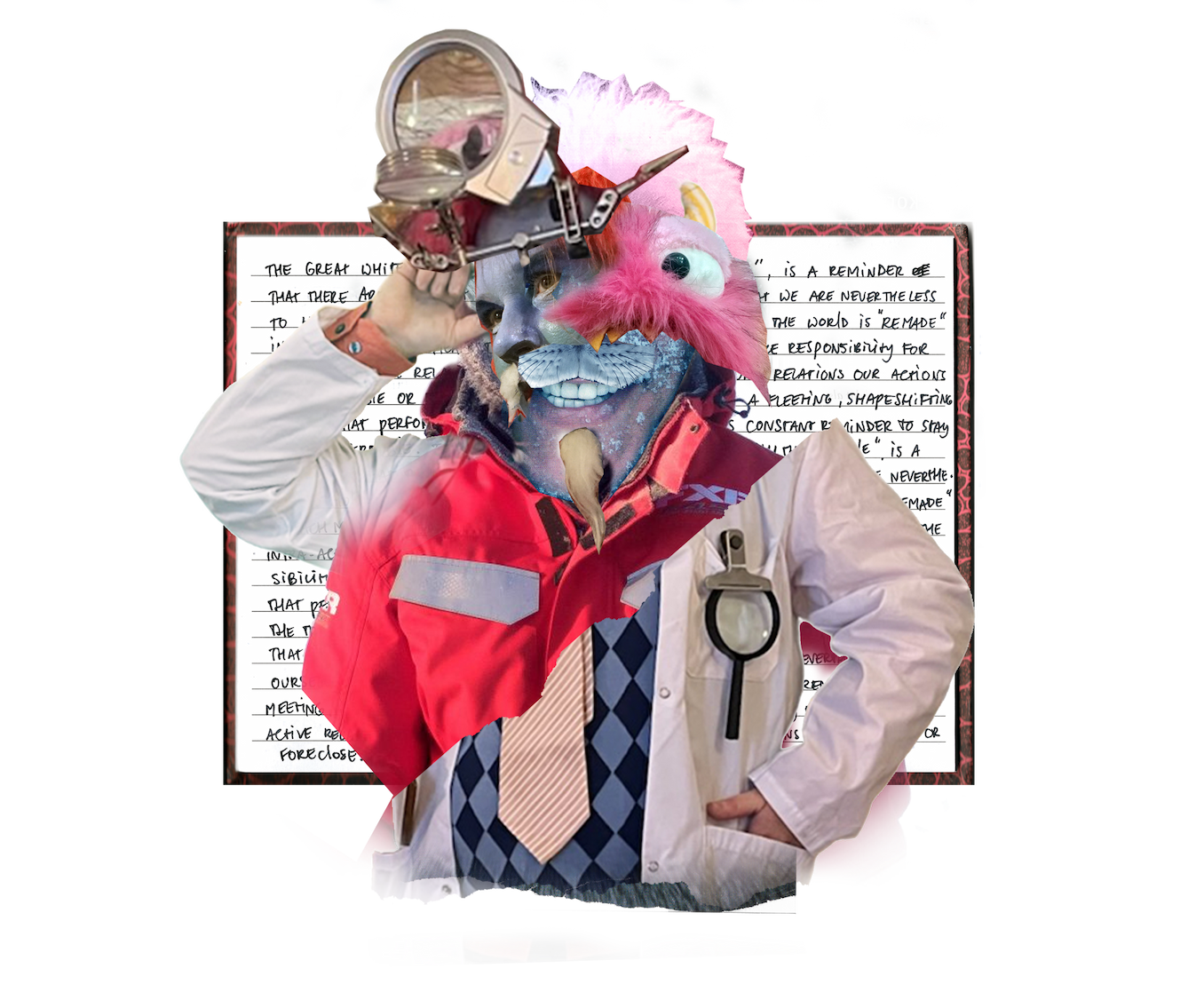Ethics of Response-Ability: Difference between revisions
Created page with "You have encountered a “Great White Beast”, a fleeting, shapeshifting figure that performs the world as indeterminate. The possibilities of encountering a Great White Beast is a reminder that there are no right decisions to be made, but that we are nevertheless to hold ourselves accountable to our own choices. In this case such trouble refers to the controversy around western scholarship, when it takes up ideas like intra-dependency and relational worldviews while e..." |
No edit summary |
||
| (19 intermediate revisions by the same user not shown) | |||
| Line 1: | Line 1: | ||
[[File:Great white beast small.png|thumb]] | |||
You have encountered a “Great White Beast”, a fleeting, shapeshifting figure that performs the world as indeterminate. | |||
The ethics involved when it comes to drawing from research paradigms that consider the world as indeterminate, intra-dependent and ontologically generative, cannot be resolved through ‘right’ ways of doing things<ref>Rosiek, J., & Adkins-Cartee, M. (2023). Diffracting structure/agency dichotomies, wave/particle dualities, and the citational politics of settler colonial scholars engaging Indigenous studies literature. Cultural Studies↔ Critical Methodologies, 23(2), 157-169.</ref>. | |||
<div class="next_choice">Non-Indigenous researchers engaging any form of generative ontologies need to take responsibility for whichever option they choose: | |||
<span class=" | '''Engaging Indigenous scholarship.''' | ||
Or, | |||
'''Not engaging Indigenous scholarship.''' | |||
Neither option is “innocent.” There are no "easy ways out".</div> | |||
<small><references /></small> | |||
<span class="detour to-cut-3 link" data-page-title="Engage Indigenous Scholarship" data-section-id="0" data-encounter-type="detour">[[Engage Indigenous Scholarship|Detour: Engage Indigenous Scholarship]]</span> | |||
<span class="detour to-cut-3 link" data-page-title="Not Engaging Indigenous Scholarship" data-section-id="0" data-encounter-type="detour">[[Not Engaging Indigenous Scholarship|Detour: Do Not Engage Indigenous Scholarship]]</span> | |||
Latest revision as of 14:47, 18 July 2025

You have encountered a “Great White Beast”, a fleeting, shapeshifting figure that performs the world as indeterminate.
The ethics involved when it comes to drawing from research paradigms that consider the world as indeterminate, intra-dependent and ontologically generative, cannot be resolved through ‘right’ ways of doing things[1].
Non-Indigenous researchers engaging any form of generative ontologies need to take responsibility for whichever option they choose:
Engaging Indigenous scholarship.
Or,
Not engaging Indigenous scholarship.
- ↑ Rosiek, J., & Adkins-Cartee, M. (2023). Diffracting structure/agency dichotomies, wave/particle dualities, and the citational politics of settler colonial scholars engaging Indigenous studies literature. Cultural Studies↔ Critical Methodologies, 23(2), 157-169.
